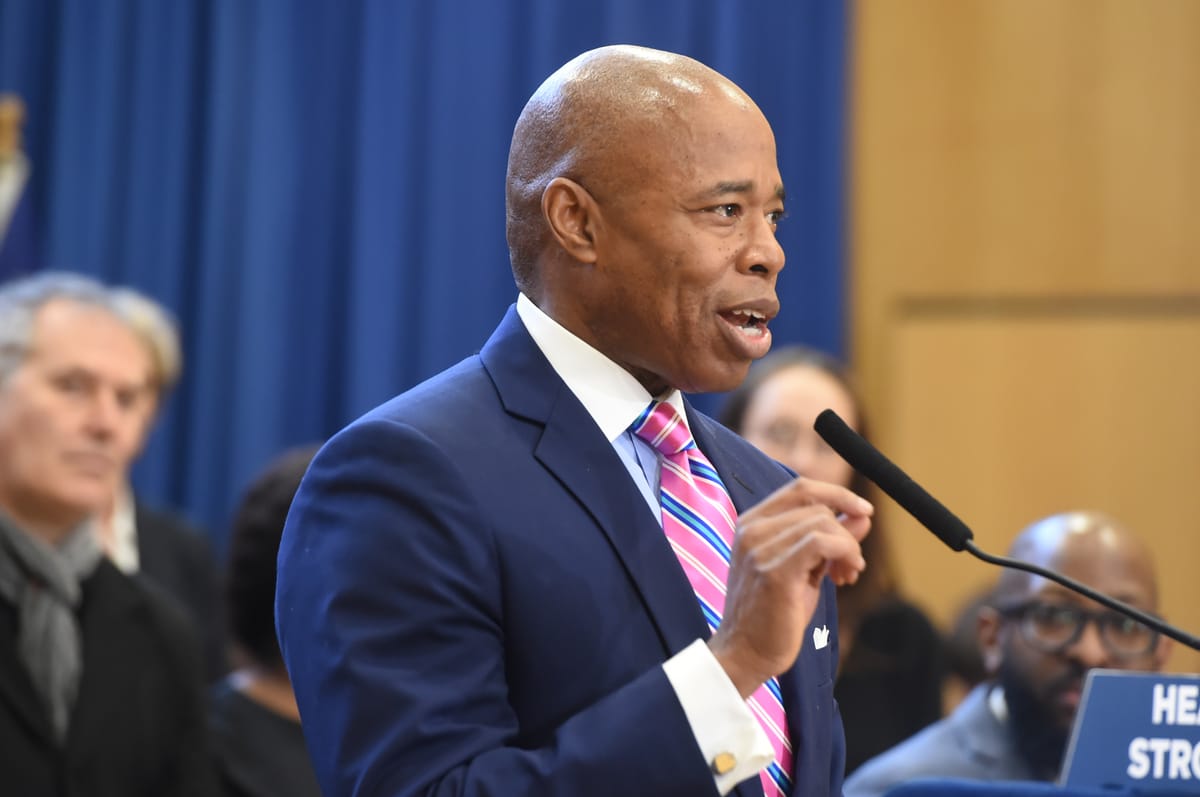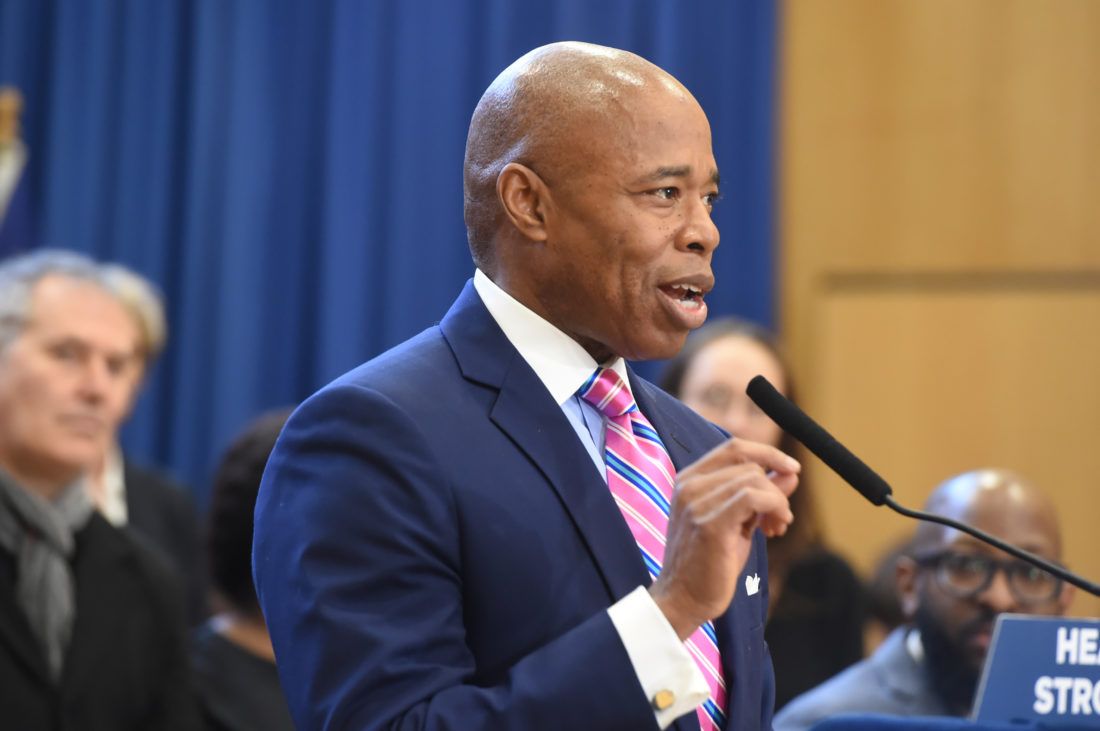Cops Deserve a Raise as Reward for Keeping Crime Low, Brooklyn BP Says


BROOKLYN — Brooklyn Borough President Eric Adams on Wednesday defended his calling for the city’s police officers to receive a raise, arguing keeping crime at bay is an “economic stimulus.”
“Public safety is a prerequisite to prosperity,” Adams, who is likely among the top 2021 mayoral contenders, said on New York 1. “It is not only how do we keep our streets safe, but it is really our economic stimulus package.”
“When we made our streets safer from the ‘90s to 2018, we saw property values increase, we saw new businesses open, even tourism [increased],” he added.
Boosting pay for NYPD officers, Adams said, is about “reward[ing] those who made” crime reduction a reality.
“We’re far from the days of 2,000 homicides a year and 98,000 robberies,” he explained. “Law enforcement prevents the disorder that prevents the city from moving forward.”
The borough president’s comments come after he argued in a Daily News op-ed on Monday that NYPD officers should be paid more than the average (before overtime) $51,000 salary cops make after five years on the job.
A former police officer, Adams wrote that his NYPD salary gave him a “pathway to the middle class” and allowed him to buy a home. He also said the city has failed to keep NYPD salaries on par with what cops get paid in New York City’s neighboring counties.
“If my son wanted to join the NYPD,” he wrote, “I’d want him to have the same pathway to the middle class as I did. Achieving true equity in pay will help the next generation of cops to invest in the communities they protect and serve, putting down lasting roots that make our blocks safer at all hours.”
During his Wednesday NY1 appearance, Adams said that, along with paying cops more, better education is an effective way to reduce crime, which continues to fall in most of the city but has seen a rise this year in certain pockets of the city, like central Brooklyn.
“Many people are engaged in the conversation about closing Rikers [Island], [but] no one is talking about closing the pipeline that feeds Rikers,” he said. “The real crime is not only what happens on the street corners, it’s what takes place in schools every day to black and brown boys.”
“If we start looking at upstream and not waiting downstream, we won’t be producing the crime,” Adams said. “That is the real crime, what we do to black and brown boys in the city.”



